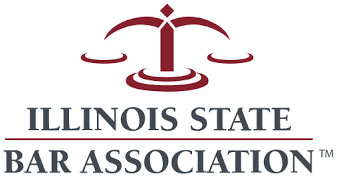DuPage County High Asset Divorce Attorney

Lawyer For High-Value Marital Property Issues in Wheaton and Naperville
Property division can be a difficult part of any divorce, and the greater the value of the assets involved, the more complicated the process can be. The unique challenges of a high asset divorce can affect not just couples who are stereotypically "rich," but also those who have accumulated valuable assets together over many years of marriage. When high-value assets are on the line, it is especially important that you go into the divorce process fully prepared to protect your interests. Often, this means assembling a team that includes a skilled divorce attorney, as well as financial advisors, accountants, tax consultants, and other professionals.
At Hensley Sendek Law, our Attorney Jessica Sendek is a valuable addition to any high asset divorce team. She brings more than 10 years of family law experience to her practice, including in divorce cases involving high marital assets. She will work with you one-on-one to thoroughly review your finances and approach your divorce with a strategy that helps you retain important assets and minimize losses.
Property Division in an Illinois High Asset Divorce
One of the most important and challenging aspects of a high asset divorce is the division of marital property. This is not just because the property has a high value, but also because many high asset divorces involve different kinds of property that can be difficult to divide. Some high-value properties that can raise unique challenges include:
- Real estate property - Many divorcing couples face the prospect of dividing the marital home, but in a high asset divorce, the marital estate may include other real estate properties as well. Some of these may be used for leisure or vacation, while others may be used as a source of rental income. During the divorce process, all of these properties will likely need to be valued, and you may face difficult decisions regarding whether to sell certain properties and divide the proceeds or find a way to fairly allocate the properties between you and your spouse.
- Businesses - Businesses acquired or founded during a marriage are usually considered to be part of the marital estate, regardless of whether one or both spouses were involved in the business operations. It is important to obtain a business valuation when you are dissolving your marriage to ensure that you understand how it factors into the overall value of the marital estate and that you have a basis for negotiations. Depending on each spouse's preference, it may be necessary to sell a business, cede other marital assets in order to retain possession of a business, or work out an arrangement that allows for continued co-ownership.
- Retirement accounts - Pensions, IRAs, 401(k)s, and other retirement accounts are often contentious properties, especially when couples divorce late in their careers and expect to rely on the funds for income in the near future. If both spouses have retirement accounts in their own names, it may be relatively straightforward to distribute the assets equitably. However, if a retirement account must be divided, it is usually necessary to obtain a Qualified Domestic Relations Order (QDRO) or pursue a transfer incident to divorce in order to avoid losing assets to income taxes and early withdrawal penalties.
One crucial consideration when dividing property in a high asset divorce is whether any of your property can be considered non-marital property, perhaps because you acquired it before the marriage or through inheritance or divorce. Many couples with significant assets may also have a prenuptial or postnuptial agreement that excludes certain assets from the marital estate. Any assets that are non-marital do not need to be divided in a divorce.
Child Support and Spousal Support in a High Asset Divorce
When divorcing spouses have significant financial resources, it can also impact decisions regarding child support and spousal maintenance. For example, when it comes to ordering child support, a court will consider both parents' resources from all sources and the child's accustomed standard of living during the marriage. A parent with substantial means may be ordered to contribute beyond the amount determined through the basic support calculation, and these additional contributions may be for a child's educational expenses, health insurance needs, and extracurricular activities.
Spousal support may not be necessary if both parties have substantial income and assets of their own. However, if one partner was the sole or primary earner and the other spouse has little work experience or earning ability, maintenance can play a major role in the divorce, especially if it is provided for in a valid prenuptial agreement.
Contact a Wheaton, IL High Net Worth Divorce Lawyer
For a free consultation regarding your high asset divorce and the challenges you may face, contact us today at 630-358-9029. We represent clients in Naperville, Wheaton, Winfield, Warrenville, West Chicago, and throughout DuPage County, as well as surrounding areas in Cook County, Kane County, and Will County.
















